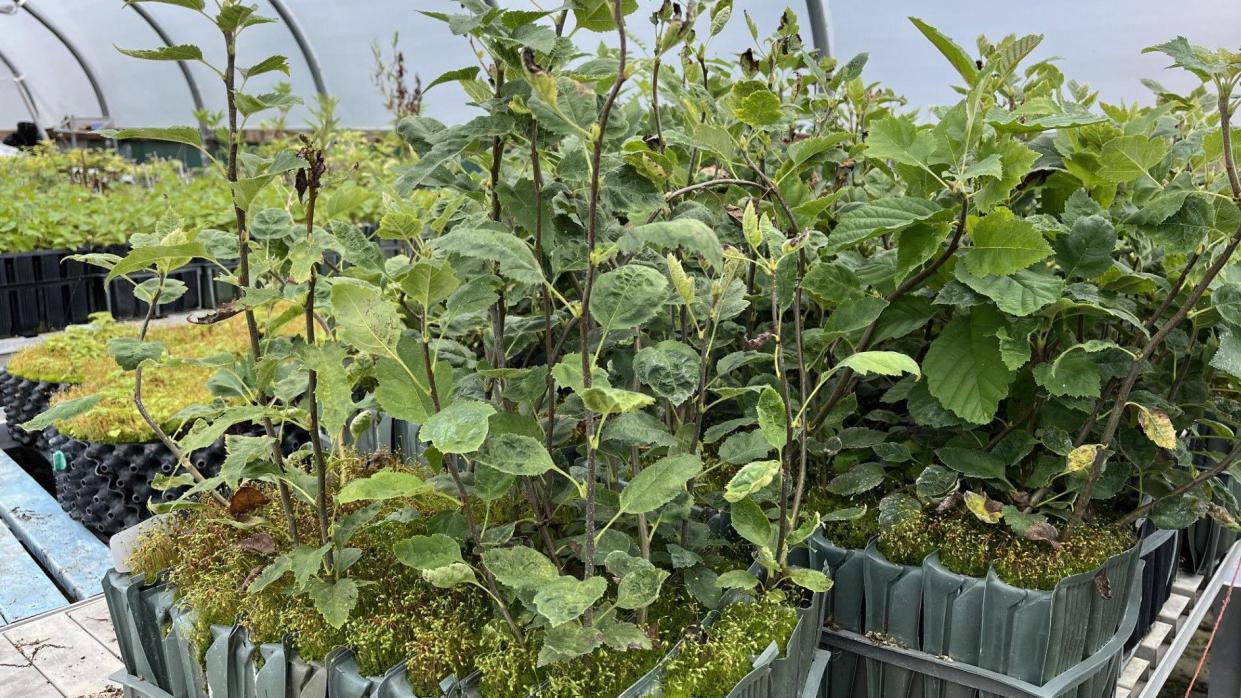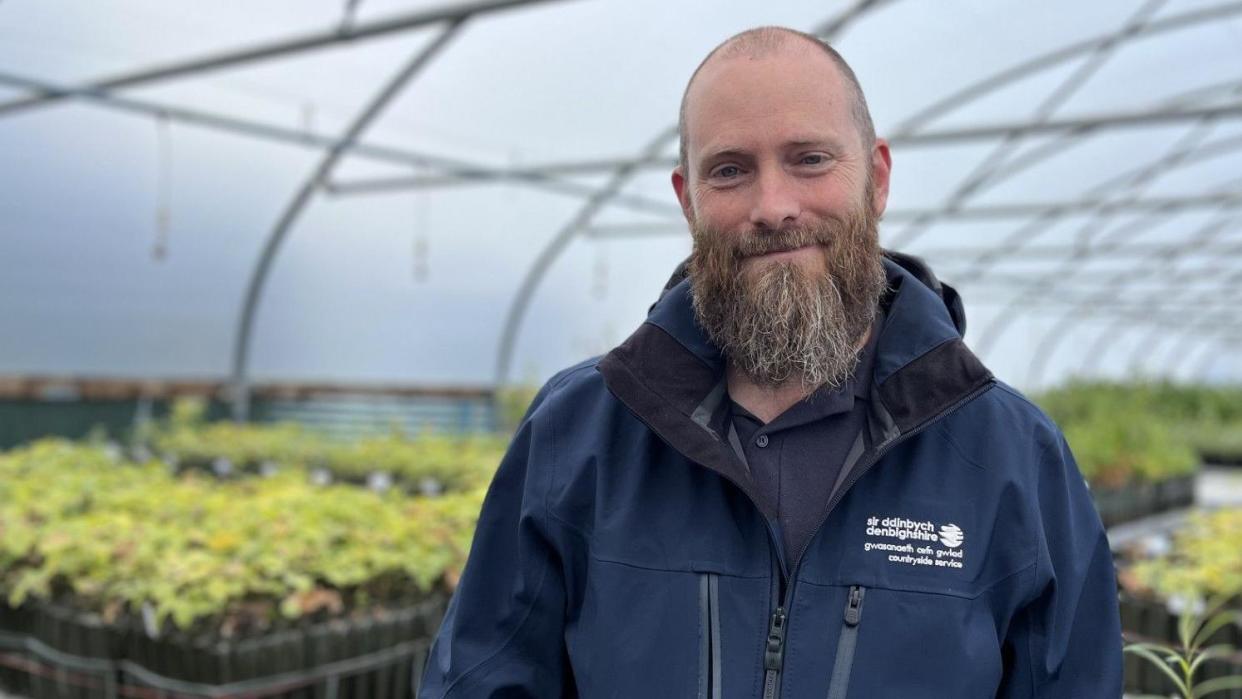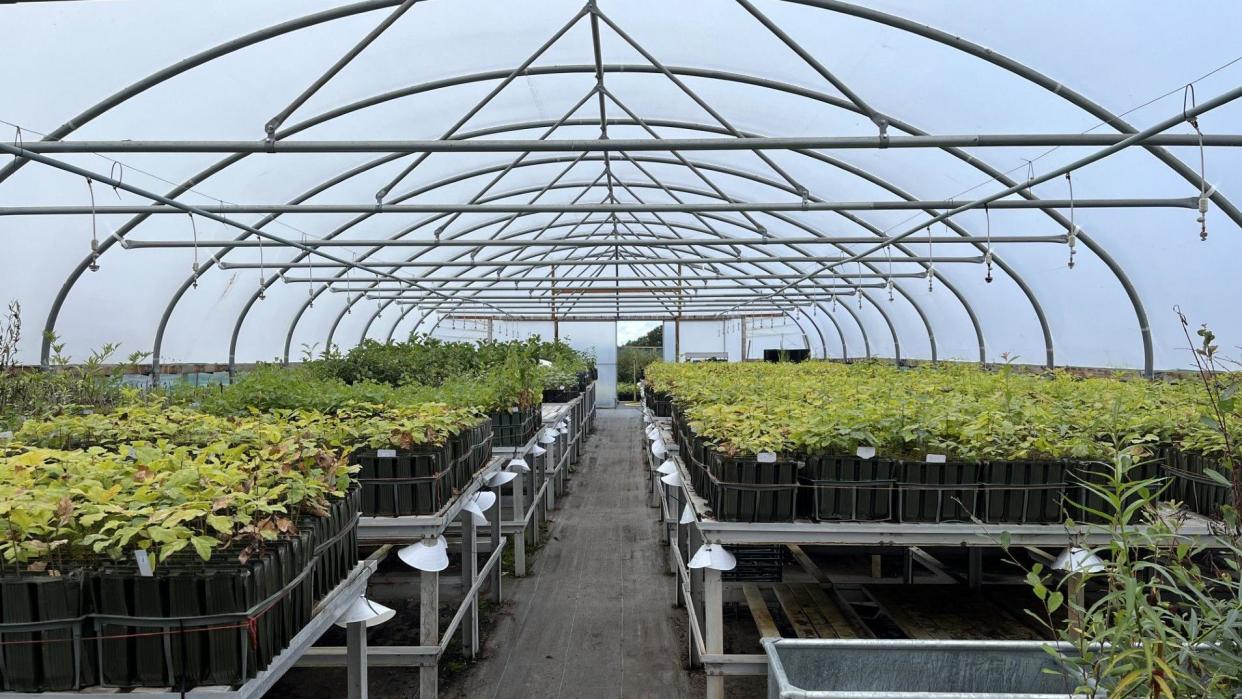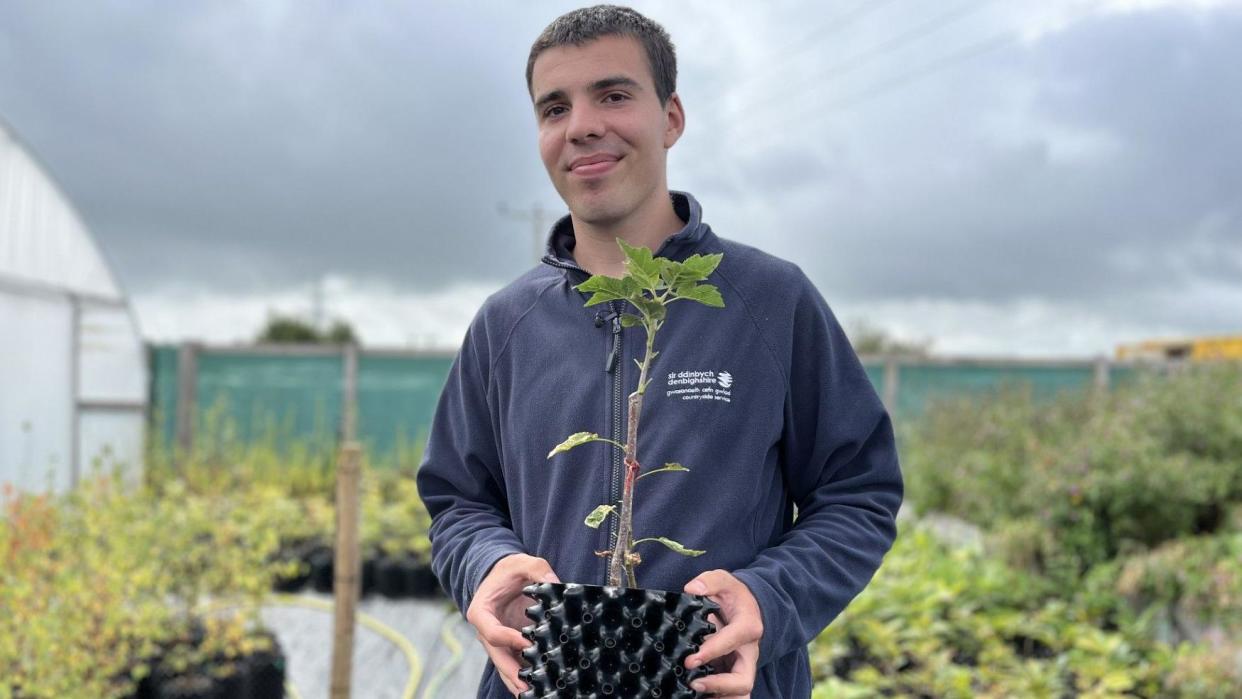Rare 'sweets and beer' tree saved for future

A rare type of native tree whose fruit was eaten by children as sweets and was once used to make a type of beer is being cultivated as part of a project to boost biodiversity.
There are only 16 recorded Sorbus torminalis, commonly known as wild service trees or chequers, in Denbighshire.
But after harvesting their seed, the council's tree nursery now has dozens of young specimens, which will eventually be planted out.
It is a tiny fraction of a project to enrich the county's native tree and plant populations.
It began when the site of a former council-owned farm in St Asaph was turned into the nursery in 2022.
Funded by the Welsh government, the nursery at Green Gates farm set out with the aim of producing more than 5,000 native trees and 5,000 native wildflower plants a year, with the help of a small army of volunteers.
Liam Blazey, senior biodiversity officer for Denbighshire council, said the work mapping and harvesting seed from ancient and veteran trees was "crucial" to the survival of some species.
"At the moment, unfortunately, there's not much biodoversity left in the UK... it ranks 189th out of 218 countries," he said.
"From a biodiversity perspective the UK is very impoverished."
"This project is looking to restock some of these lost species and boost populations that are currently there. Hopefully through some of the work we are doing here, we can slow or turn the tide."

He said the general focus was on broad leaf trees of local provenance.
When rarer trees are found, like wild service, black poplar and juniper, seed is taken for growing in polytunnels and outdoors at the nursery until they are ready to be planted.
Mr Blazey that some trees will form part of a nature reserve being created on fields next to the nursery, as well as in locations around the county, leading to a "marked increase" in these species in the next few years.

Wild service trees have some historic significance. The fruits, also known as chequers, were once used to make a type of beer, and are thought by some to have given many UK pubs and inns their names.
But it is what they can provide to their natural environment which is more important to Mr Blazey.
"A single tree is an entire ecosystem in itself," he said.
"Every one of these trees, once it's planted out, will live for over 100 years and the amount of life you can get from that is incredible."
"The flowers are useful for moths and pollinators, the fruit is eaten by bullfinches and robins, the fruit that isn't eaten falls to the floor and that's consumed by foxes and badgers and other mammals.
"But then you've got lichen and mosses that in themselves have entire little eco-systems surrounding their survial."

Tree nursery assistant Sam Brown said it was a "privilege" to work on a project like this.
"Getting hands-on with these really rare tree and plant species is just amazing. Not only is it a current topic but it's really important that we sort our biodiversity out, because we are so nature depleted."
It is one of the initiatives started by Denbighshire council following its declaration of a climate and ecological emergency in 2019.
Other projects include the creation of wildflower meadows in locations such as footpath edges and highway verges.






